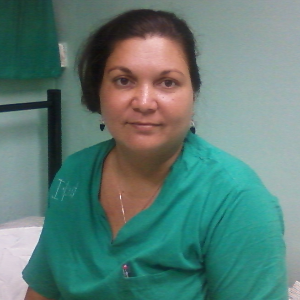Abstract:
Introduction: Among all types of trauma in children, traumatic brain injury has the greatest potential for the development of devastating consequences, with nearly three million affected each year in the world.
Method: A quasi-experimental study was carried out in pediatric patients with severe traumatic brain injury, whose objective was to evaluate the use of continuous multimodal neuromonitoring of intracranial parameters as a guide in the treatment of children of different age groups. The patients were divided into two groups according to the treatment received; clinical and imaging monitoring was performed in both. Group I included those whose treatment was guided by multimodal neuromonitoring of intracranial parameters such as intracranial pressure, cerebral perfusion pressure and intracranial compliance, and group II included those who had only clinical and imaging monitoring.
Results: 80 patients were studied, 41 in group I and 39 in group II. There were no significant differences between the groups with respect to the sociodemographic variables and the results, as a consequence both forms of treatment were outlined, for patients with multimodal neuromonitoring and for those who only have clinical and imaging monitoring.
Conclusions: It is concluded that both treatment schemes can be used depending on technological availability, although the scheme with multimodal neuromonitoring is optimal.
Keywords: Severe head trauma, Neuromonitoring, Treatment of severe head trauma.
Audience Take Away
- The audience will learn about the usefulness of invasive and non-invasive neuromonitoring in severe head trauma in pediatrics
- The results of a comparison between patients with invasive and non-invasive neuromonitoring against another group with clinical and imaging monitoring will be known
- New criteria for clinical suspicion of intracranial hypertension are applied
- Clinical criteria for neuroimpairment are applied.
- The implementation of a modification of the CREVICE protocol for pediatric patients and the results with its use are reported



